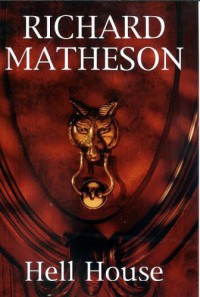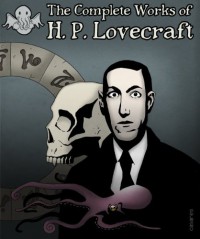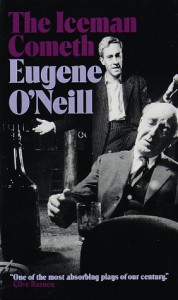Hell House
 I was not frightened by Hell House. To instill horror, the novel depends largely on the transgression of sexual mores. Those mores seem quite outdated to this reader in 2016. There are already many excellent reviews that make the same point, so I'll say no more on that topic.
I was not frightened by Hell House. To instill horror, the novel depends largely on the transgression of sexual mores. Those mores seem quite outdated to this reader in 2016. There are already many excellent reviews that make the same point, so I'll say no more on that topic.I gave Hell House two stars because of Matheson's craftsmanship. It's built to last with solid joinery and thick coat of polyurethane. It's too bad that it elicits no more emotion than would a chest of drawers.
Duplex: A Novel
 In my favorite passage of Kafka’s [b:The Trial|17690|The Trial|Franz Kafka|https://images.gr-assets.com/books/1320399438s/17690.jpg|2965832], K. takes a tour of the Court’s offices. No one that K. encounters finds it odd that the Court’s offices are located in the dark, stifling attic of a tenement house. The reader finds it odd, but not jarringly so. It would make sense in a dream and, in the preceding chapters, Kafka has all but come right out and told the reader to expect dream logic. Moreover, Kafka’s skill is such that the reader does not realize how completely she’s suspended her own disbelief.
In my favorite passage of Kafka’s [b:The Trial|17690|The Trial|Franz Kafka|https://images.gr-assets.com/books/1320399438s/17690.jpg|2965832], K. takes a tour of the Court’s offices. No one that K. encounters finds it odd that the Court’s offices are located in the dark, stifling attic of a tenement house. The reader finds it odd, but not jarringly so. It would make sense in a dream and, in the preceding chapters, Kafka has all but come right out and told the reader to expect dream logic. Moreover, Kafka’s skill is such that the reader does not realize how completely she’s suspended her own disbelief.Kathryn Davis does not manage to pull off this trick quite as well in Duplex. Dream logic is only believable when it is underpinned by an infrastructure of consistency. This was somewhat lacking in Duplex. I found myself confused not by time shifts and multiple dimensions, but by the abrupt change in tone from section to section.
However, I thoroughly enjoyed this novel. There were passages that were as beautiful and haunting as the memory of a vivid dream right after you’ve awoken. Marjorie Vicks’ river crossing was one such image.
The myths (e.g. The Four Horsewomen, The Descent of the Aquanauts, The Rain of Beads), were off putting the first time I read the book. But after a second reading (I’ve read the book three times now), I was glad that Ms. Davis had woven them into Duplex.
I think the novel itself is a myth about the lifecycle of twentieth century women. Seen from that perspective, the myths embedded in the novel could server as signals of the author’s intent to mythologize. Even if there’s really nothing more to them than colorful yarns, they’re funny, scary and sad.
So, if you are willing to plow through some rough patches and if you are willing to invest the time to read this book at least twice, I think you’ll discover that images, and even experiences, from Duplex have a way of sneaking past your conscious mind and insinuating themselves into your own store of associations and connotations.
In the Land of Invented Languages: Esperanto Rock Stars, Klingon Poets, Loglan Lovers, and the Mad Dreamers Who Tried to Build a Perfect Language
 Have you ever attempted to create your own language? I have, though, admittedly, in a desultory kind of way.
Have you ever attempted to create your own language? I have, though, admittedly, in a desultory kind of way.So, when I spotted [a:Arika Okrent|1587890|Arika Okrent|https://s.gr-assets.com/assets/nophoto/user/f_50x66-6a03a5c12233c941481992b82eea8d23.png]'s book at the used bookstore, I thought I'd see how other would-be creators had done. Turns out that plenty of others have worked much, much harder and for much, much longer than I ever did. And yet their languages never really amounted to much more than mine.
Okrent is a skilled storyteller and understands what it takes to keep a layman like myself engaged. If there were a such a thing as Popular Linguistics magazine, then [b:In the Land of Invented Languages|7420389|In the Land of Invented Languages Adventures in Linguistic Creativity, Madness, and Genius|Arika Okrent|https://images.gr-assets.com/books/1320435729s/7420389.jpg|3773893] could easily form the basis for a successful feature.
However, there is more to the book than a series of factoids. Even the most successful of the invented languages is used by only a tiny fraction of humanity. Think what it would mean to have spent one's adult life toiling away at a language that no one uses, while billions of people have adopted emoji in a matter of a few years. There is plenty of failure and pathos in the land of invented languages and Okrent doesn't shy away from it.
The Complete Works of H.P. Lovecraft
 Read “The Strange High House in the Mist”
Read “The Strange High House in the Mist”To the many excellent reviews already posted, I'll simply add my praise for two stories in this collection, The Strange High House in the Mist" and “The Music of Erich Zann”.
I prefer these two, precisely because they doesn’t rely on the Cthulhu Mythos. Don’t get me wrong, I have nothing against the mythos that Lovecraft created. I enjoy fantastic worlds in general and I admire Lovecraft’s tenacity in crafting his own.
Unfortunately, many of the short stories and novellas upon which he built the Cthulhu Mythos fail to place the reader in the invented universe. Lovecraft felt it necessary to undergird many of his works with a mythos so consistent and complete that it drained the mystery right out of them.
Not so with “The Music of Erich Zann”. Here the narrator unburdens himself of memories that he can’t explain. They may be false memories or the universe may have changed its rules without informing him. Lovecraft never tells the reader. To do so would ruin the story, because it’s the mystery that makes it beautiful. It is a pleasure for the reader to suspend disbelief.
In “The Strange High House in the Mist”, Lovecraft presents us with another interface between our prosaic world and a frightening, enticing Beyond. The pleasure comes not from visceral fear of giant octopi or disgust at the sight of a decomposing corpse, but from unclenching one's mind; from allowing oneself to imagine that, for generations, no one in a tiny fishing village has been curious about a plainly visible house on nearby cliff to climb up and have a look.
Ladies and Gentlemen, The Bible!
 Yes, it's true that Goldstein strains to wring humor out of every story.
Yes, it's true that Goldstein strains to wring humor out of every story.But...
This book earned 4 stars not by being funny, but by inducing the reader to empathize with the characters. I wonder if Goldstein didn’t employ humor just to misdirect the reader’s attention, as a magician might use a cape or pyrotechnics. The reader’s thoughts might turn elsewhere (maybe lamenting the flatness of the jokes), allowing Goldstein to make a scene of considerable poignancy materialize out of thin air. For example, the death of Cain or screams of the drowning as heard from inside the Ark.
Bowling Alone: The Collapse and Revival of American Community
 If you believe Snapchat and Twitter have satisfied humanity’s need for community, then Bowling Alone’s not for you.
If you believe Snapchat and Twitter have satisfied humanity’s need for community, then Bowling Alone’s not for you.If, on the other hand, recent events have made you wonder how Americans can be so well connected and so bitterly divided, then you might want to have a look.
This book is not perfect. It doesn’t fully acknowledge the unpleasant truths about the social cohesion of the mid twentieth century; that it required women to sacrifice their aspirations, that the majority’s sense of “us” came at the expense of an oppressed “them”.
But it is fundamentally a hopeful book. Putnam wants us to understand that America need not dissolve into nothing more 100 million households eyeing each other suspiciously through HD security cams; that the future could be brighter.
Slaughterhouse-Five
 Reading a Vonnegut novel can feel like going without sleep. Both are disorienting and both can make you irritable. BUT...to judge Slaughterhouse Five by Vonnegut's style is to miss the point.
Reading a Vonnegut novel can feel like going without sleep. Both are disorienting and both can make you irritable. BUT...to judge Slaughterhouse Five by Vonnegut's style is to miss the point.Vonnegut uses bizarre, childish devices to keep us from jumping ship. If it weren't so strange, would we be able to stomach instance after instance of cruelty, sadism and suffering? Vonnegut wants his reader to finish the book and realize that he or she hasn't done much better than pathetic Billy Pilgrim when it comes to standing up to evil.
The Trial
 If you've ever wondered why Kafka gets his own adjective ("Kafkaesque"), read [book:The Trial|17690]. You won't be disappointed.
If you've ever wondered why Kafka gets his own adjective ("Kafkaesque"), read [book:The Trial|17690]. You won't be disappointed. Complicity and Conviction: Steps Toward an Architecture of Convention
 Hubbard’s book, only 226 pages long, has had a profound influence on my thinking since I read it back in 1990. It was assigned reading in college. The edition that I bought had a bland, grayish cover adorned only with the title and author’s name, both in a sterile, academic looking font (I know, because it’s still in my bookcase). In short, I was dreading having to read it.
Hubbard’s book, only 226 pages long, has had a profound influence on my thinking since I read it back in 1990. It was assigned reading in college. The edition that I bought had a bland, grayish cover adorned only with the title and author’s name, both in a sterile, academic looking font (I know, because it’s still in my bookcase). In short, I was dreading having to read it.But just a few pages into the book, I realized I was into something unique. The book, nominally about architecture, was really about how humans assign meaning to the world around them. And the author proposed to cover that mammoth subject in a book that was less than a quarter the size of my other textbooks. It was either going to be thundering triumph or a highly amusing failure. It turned out to be the former.
Hubbard argued that humans have been assigning meaning to the world around for time immemorial. It was a snug, comfy arrangement, because humans had always made up reasons to believe that the meaning they’d assigned was intrinsic and ageless. Then Modernism came along, pulled back the curtain and shouted, “Look, it’s all fake! We’re just making this stuff up!” After that, of course, it was difficult to sustain the illusion that man-made meanings were, in fact, inherent and timeless.
This led to architecture that didn’t even try to pretend it had some kind of meaning, in other words, depressing architecture. Hubbard pointed out that humans had not entirely abandoned our practice of looking the other way while meanings were being assigned. He showed that complicity was alive and well in areas including games, typography and law.
Hubbard’s reason for writing his book was to argue that architecture needed to reattach itself to people, but I’ve found that his insights apply far beyond architecture. I hope that they’ll find them equally as valuable. But even those who have no interest in architecture, sports, law or typography; even those who completely disagree with Hubbard’s thesis, can still take pleasure in reading Hubbard’s succinct, lucid prose.
The Iceman Cometh
 This edition has a great Forward by [a:Harold Bloom|236|Harold Bloom|https://images.gr-assets.com/authors/1212940902p2/236.jpg].
This edition has a great Forward by [a:Harold Bloom|236|Harold Bloom|https://images.gr-assets.com/authors/1212940902p2/236.jpg]. Honestly, I'm not a big Harold Bloom fan, but I learned a great deal about The Iceman Cometh by reading his commentary. It's worth investing the ten or fifteen minutes it takes to get through it.
Here's my favorite quote from Bloom:
"To deprive the derelicts of hope is right, and to sustain them in their illusory "pipe dreams" is right also."
The Secret of Terror Castle
 It's been so many years since I'd even thought about The Three Investigators. To be honest, I'd need to reread them in order to write a decent review. Just wanted to say how much I enjoyed reading these when I was in elementary school.
It's been so many years since I'd even thought about The Three Investigators. To be honest, I'd need to reread them in order to write a decent review. Just wanted to say how much I enjoyed reading these when I was in elementary school.



